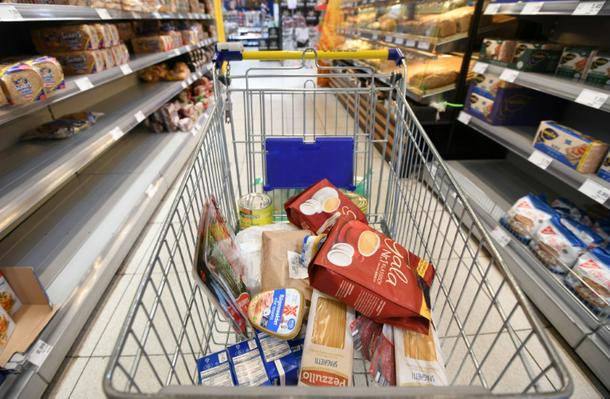
The European Central Bank has pleaded for patience as consumers face higher prices
Brussels (AFP) - Soaring energy prices took eurozone inflation to its highest rate on record in November, official data showed Tuesday, challenging the European Central Bank’s resistance to tightening monetary policy earlier than planned.
Consumer prices rose by 4.9 percent this month, up from 4.1 percent the previous month, the highest reading since the official statistics agency Eurostat began compiling the data more than 20 years ago.
The figure is more than double the ECB’s target of two percent.
Inflation has soared worldwide as demand and economies have bounced back from coronavirus lockdowns, and the emergence of the Omicron variant has created new uncertainties.
Higher cost-of-living is being experienced across the eurozone, putting pressure on the ECB to scale back stimulus and consider raising interest rates earlier than planned.
But the Frankfurt-based institution has so far insisted that the acceleration in inflation in the 19-nation zone is transitory, and is wary of acting too soon and potentially stifling the pandemic recovery.
Its next policy meeting is on December 16.
High demand after the easing of coronavirus restrictions has pushed up energy prices and led to shortages of key materials and labour around the world.
“If we tightened monetary policy now, that would not add a single container ship or truck driver,” ECB chief Christine Lagarde said in an interview with Germany’s Sueddeutsche newspaper published Monday.
The current supply chain woes and shortages will ease over time, she said, with the ECB estimating that inflation will start to fall back next year.
A member of the ECB’s executive board, Isabel Schnabel, had predicted earlier in November that inflation would hit its highest level this month since the euro was introduced in 1999.
The pace of price rises would then slow over the course of the coming year, Schnabel said.
- Omicron’s potential impact -
Inflation has gone up every month in the euro area since June.
Natural gas and oil prices have pushed up inflation around the world, with energy logging an annual rate of 27.4 percent in November in the eurozone compared to 23.7 percent in October.
Services, industrial goods, and food, alcohol and tobacco also ticked up, all above two percent.
Core inflation, which strips out energy and other items, stood at 2.6 percent in November, up from two percent the previous month.
“November’s inflation data were yet another surprise on the upside,” Jack Allen-Reynolds, senior Europe economists at Capital Economics, said in a note.
“The Omicron variant has increased the level of uncertainty even further, but for now we suspect that it will have a fairly small impact on inflation,” he added.
“Still, headline inflation looks set to remain above target until at least the end of next year.”